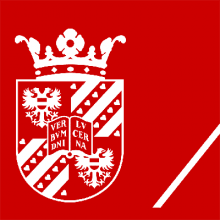A legal victory for the University of Groningen that allowed it to fire its most prominent internal critic has led to protest and concerns about scholars’ rights to scrutinise in academic publications how their institutions operate.
Last month, a district court in the Netherlands ruled that Groningen’s Faculty of Economics and Business was free to fire Susanne Täuber over what it described as a “permanently disrupted employment relationship”. The judge’s decision marked the end of an almost five-year process for Dr Täuber, a German-born organisational behaviour specialist and long-time critic of Groningen’s gender equality efforts, whose contract as an associate professor at the faculty will be terminated on 1 May.
Dr Täuber joined Groningen in 2009. In 2018, she did not win promotion from the Dutch equivalent of a lecturer to a reader. She challenged the decision, eventually exhausting all informal and formal complaints procedures, she told Times Higher Education. In 2019, she published a paper in the Journal of Management Studies that drew on her experiences as a Rosalind Franklin Fellow at Groningen. This included the claim that the scheme entrenched, rather than corrected, gender inequality.
The dean of the Faculty of Economics and Business wrote to the journal to say the essay “had several negative effects” and “cannot be supported by objective evidence” – a message repeated in an email to all faculty members. In a later email, he argued that criticism of the faculty was acceptable but that the paper’s “personal tone was not appropriate”, according to court documents.
Dr Täuber said: “They’re making a farce out of the academic way of working.” Of the management, she added: “What they could’ve done was write a counter-perspective piece.”
She described her treatment as “scientific harassment” – “the kind of stuff where you should be getting a promotion and you’re just not”.
The ruling triggered concern, with campaigners taking to Twitter with the hashtag #AmINext? to highlight what they said was a case symptomatic of declining academic freedoms.
“There is definitely a concern that doing this critical work might put us in the firing line, literally,” said Anna Bull, a lecturer in education and social justice at the University of York. “There is a danger that this is going to create a chilling effect for those of us, including myself, who work in this area.”
One Groningen academic, who asked not to be named, said: “This case will prove an inflection point in politics surrounding universities, not just in Groningen but in universities throughout the Netherlands. It’s brought together different groups with different priorities and points of focus.”
Groningen declined to comment on the verdict or the concerns raised by it, with a spokeswoman saying it did not discuss personnel matters.
Dr Täuber plans to appeal the verdict. To cover her legal costs, she has launched a crowdfunding campaign, which has reached about 80 per cent of her target of €33,000 (£29,000) at time of writing.
POSTSCRIPT:
Print headline: After sacking, scholars fear for scholarly scrutiny
Register to continue
Why register?
- Registration is free and only takes a moment
- Once registered, you can read 3 articles a month
- Sign up for our newsletter
Subscribe
Or subscribe for unlimited access to:
- Unlimited access to news, views, insights & reviews
- Digital editions
- Digital access to THE’s university and college rankings analysis
Already registered or a current subscriber? Login










